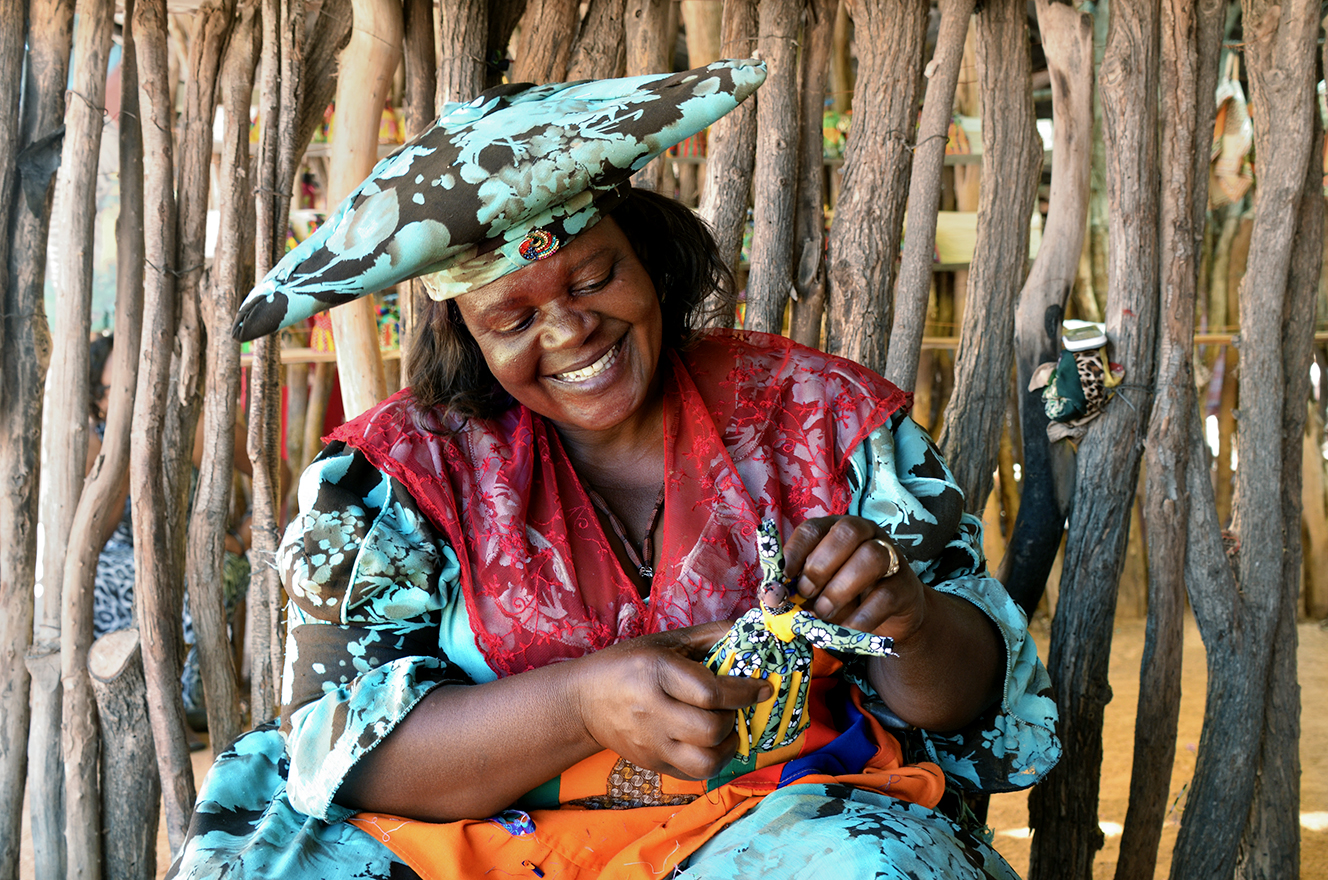Botswana & Namibia's Top 16 Experiences
Okavango Delta
Botswana's Okavango is an astonishing, beautiful, wild place. Home to wildlife spectacles of rare power and drama, the delta changes with the seasons as flood waters ebb and flow, creating islands, river channels and pathways for animals that move this way and that at the waters’ behest. Exclusive and remote lodges are an Okavango speciality but self-drivers can find outstanding campsites in the heart of Okavango’s Moremi Game Reserve. No visit to the delta is complete without drifting through the waters in a traditional mokoro (dugout canoe).
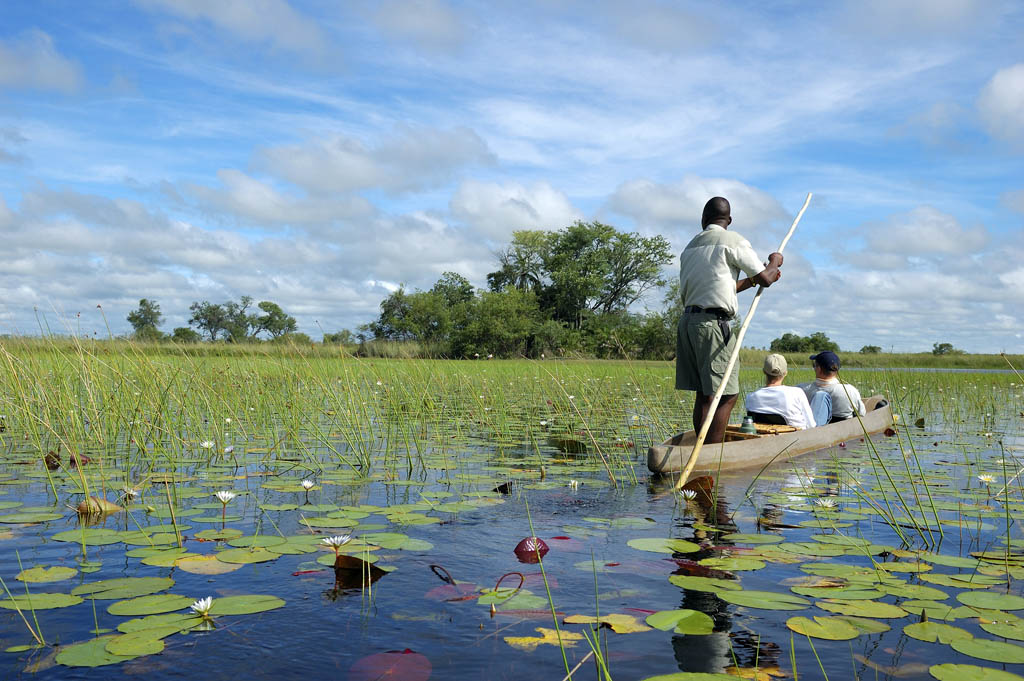
Top Experiences
Etosha National Park
There are few places in Southern Africa that can compete with the wildlife prospects in extraordinary Etosha National Park. A network of waterholes dispersed among the bush and grasslands surrounding the pan – a blindingly white, flat, saline desert that stretches into the horizon – attracts enormous congregations of animals. A single waterhole can render thousands of sightings over the course of a day, with lions and rhinos the highlights. Etosha is simply one of the best places on the planet for watching wildlife.

Top Experiences
Victoria Falls
The largest, most beautiful and simply the greatest waterfall in the world. As iconic to Africa as ‘Dr Livingstone I presume’, thunderous Victoria Falls will blow your mind and soak your shirt. It’s the sheer scale of the falls that is its most impressive feature. A million litres of water a second are funnelled over the 108m drop, creating a plume of spray that can be seen for kilometres. When you’re in Southern Africa this really is a sight that you should move heaven and earth to see.
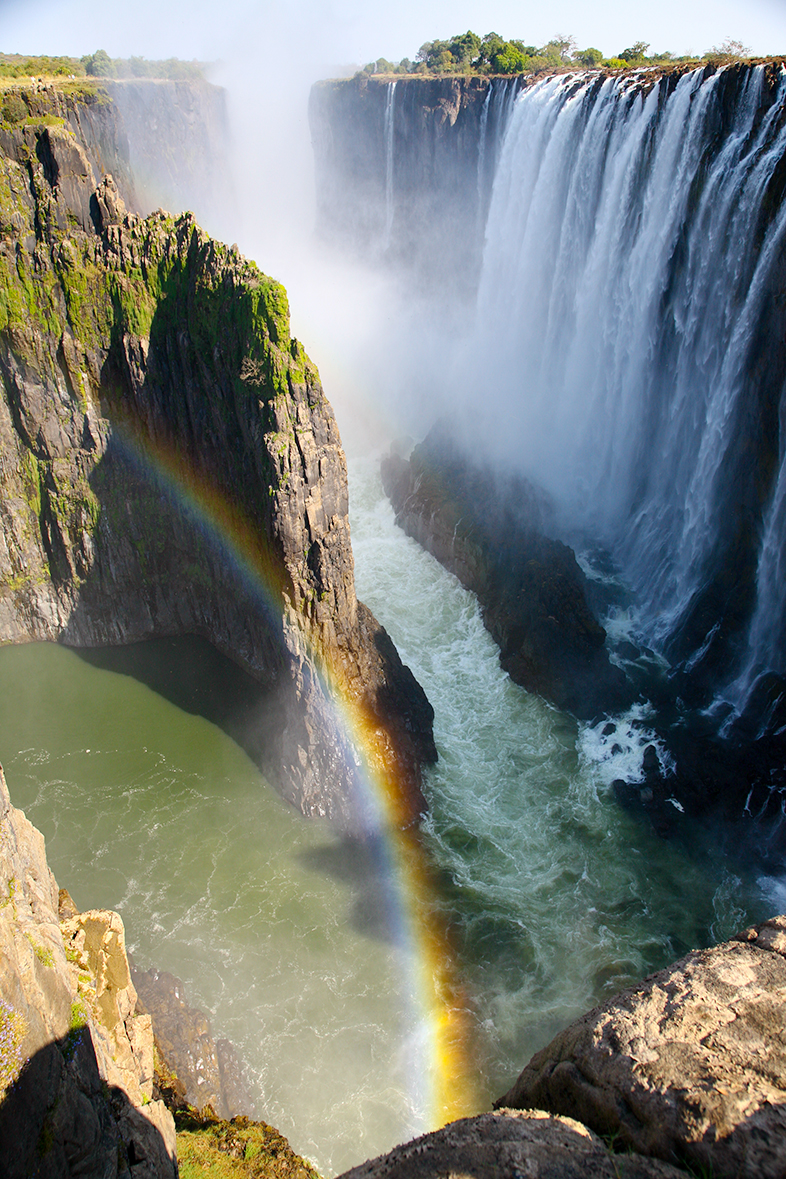
Top Experiences
Sossusvlei
Towering red dunes of incredibly fine sand that feels soft when it trickles through your fingers and changes iridescently with the light, Sossusvlei is an astounding place, especially given that the sands originated in the Kalahari millions of years ago. The Sossusvlei valley is dotted with hulking dunes and interspersed with unearthly dry vleis (low, open natural basin). Clambering up the face of these constantly moving giants is a uniquely Namibian experience. You survey the seemingly endless swath of nothingness that surrounds you and it feels as though time itself has slowed.
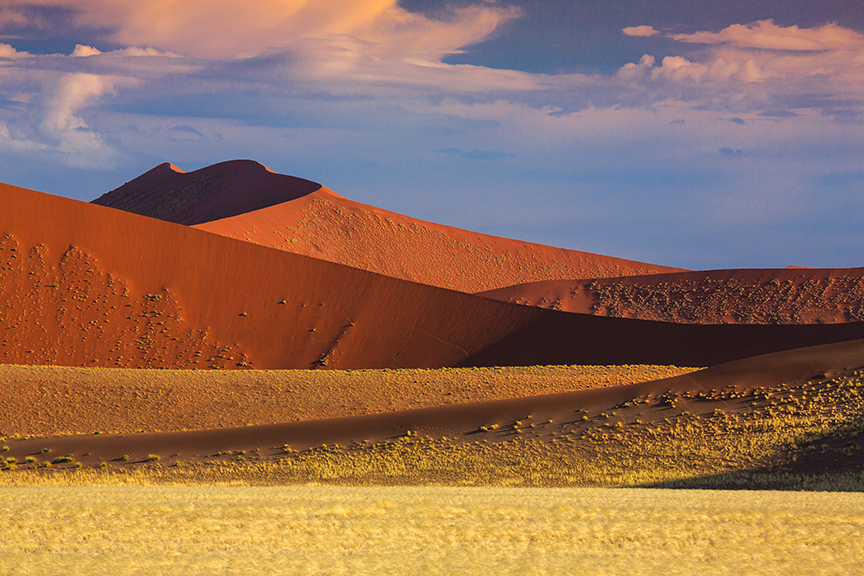
Top Experiences
Chobe National Park
There are more elephants in Chobe – tens of thousands of them – than anywhere else on earth. And these are big elephants, really big. Then there are the iconic landscapes of Savuti with its elephant-eating lions; or Linyanti, one of the best places on the continent to see the highly endangered African wild dog; or the Chobe Riverfront where most of Africa’s charismatic megafauna comes to drink. Put all of this together and it’s easy to see why Chobe National Park ranks among the elite of African safari destinations.
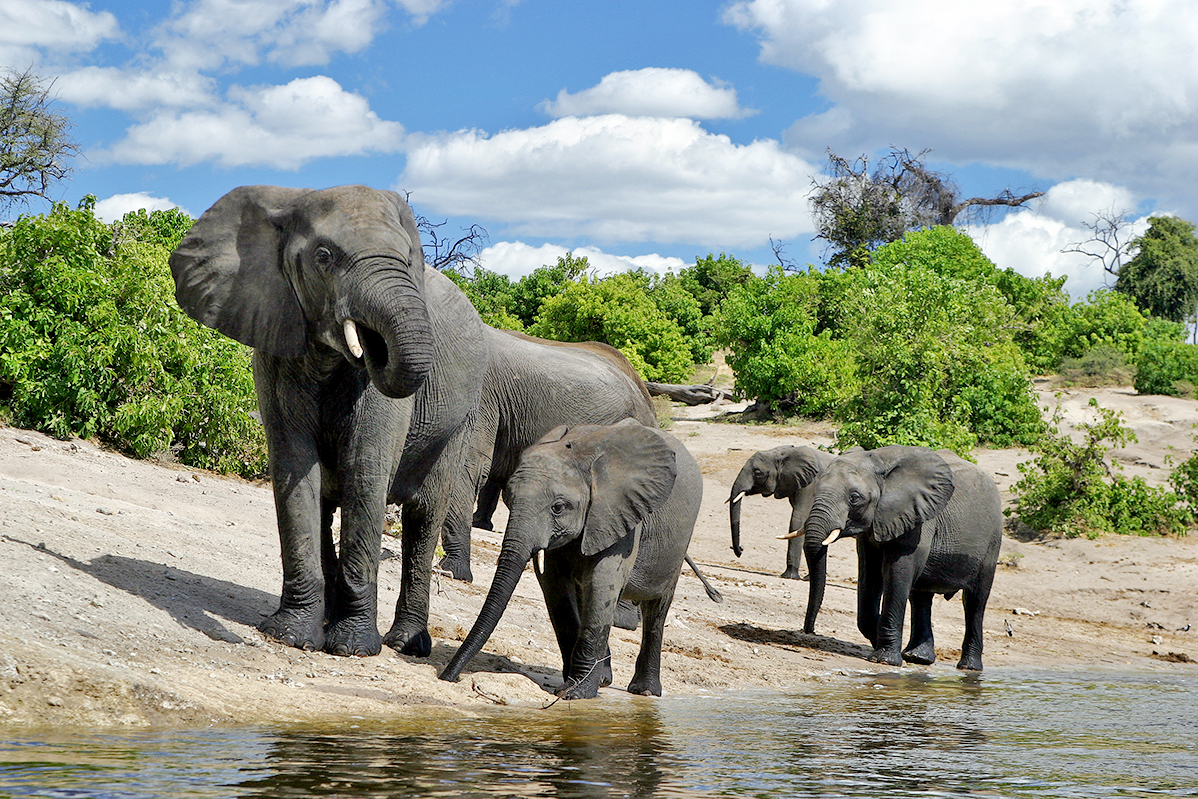
Top Experiences
Fish River Canyon
This enormous gash in the surface of the planet in the south of Namibia is an almost implausible landscape. Seen most clearly in the morning, Fish River Canyon is desolate, immense and seemingly carved into the earth by a master builder. The exposed rock and lack of plant life are quite startling and invoke thoughtful reflection and a quiet sense of awe. Its rounded edges and sharp corners create a symphony in stone of gigantic and imposing proportions.
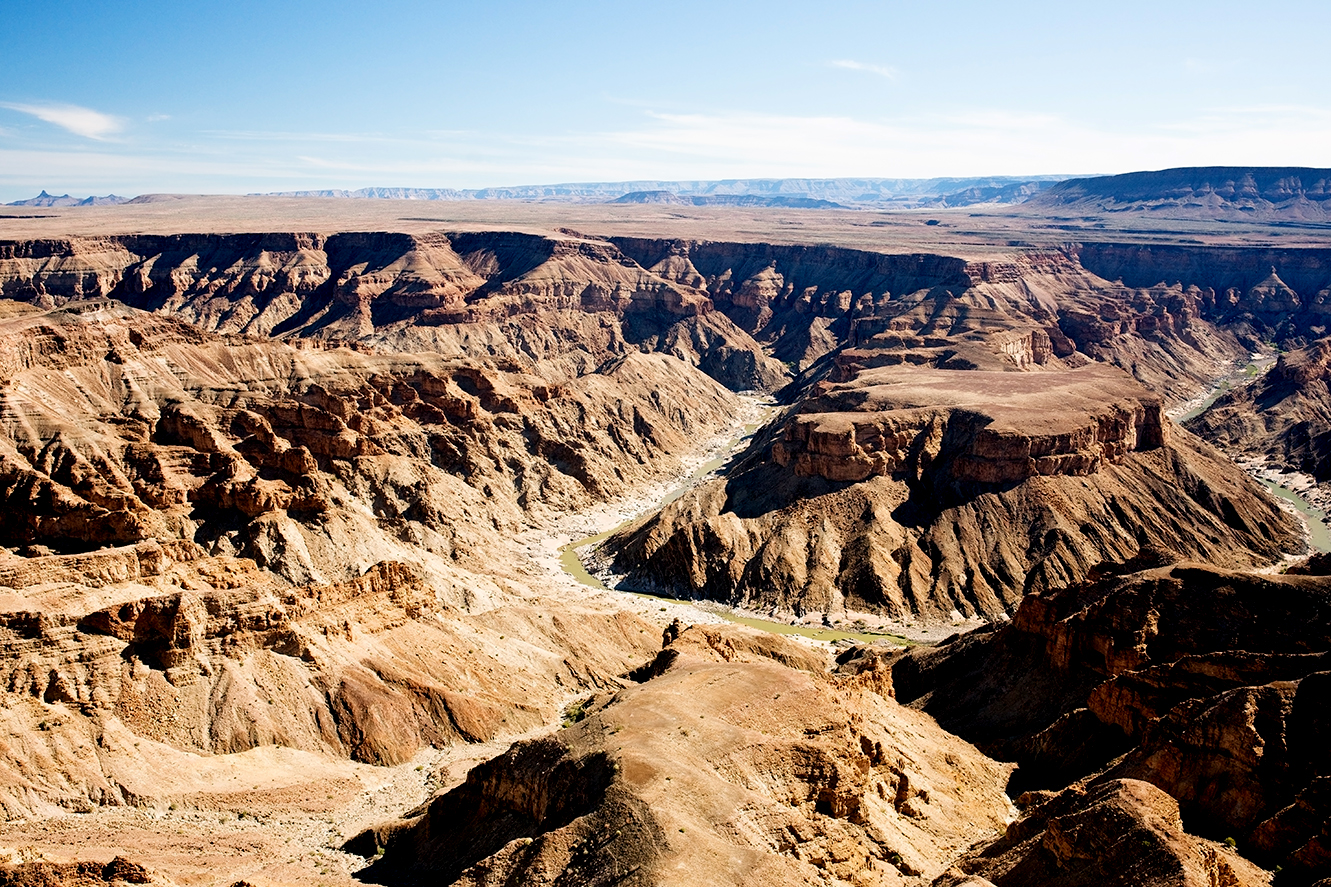
Top Experiences
Central Kalahari Game Reserve
There is something about the Kalahari. Perhaps it owes its unmistakable gravitas to a name that carries more than a whiff of African magic. Or perhaps it is the sheer vastness of this desert, which is Africa’s largest protected wilderness area. The presence of black-maned Kalahari lions doesn’t hurt, either. Whatever the reason, this is not your average desert. It's home instead to ancient river valleys, light woodland and surprising concentrations of wildlife around its extensive network of salt pans. And then there is the silence of the Kalahari night…
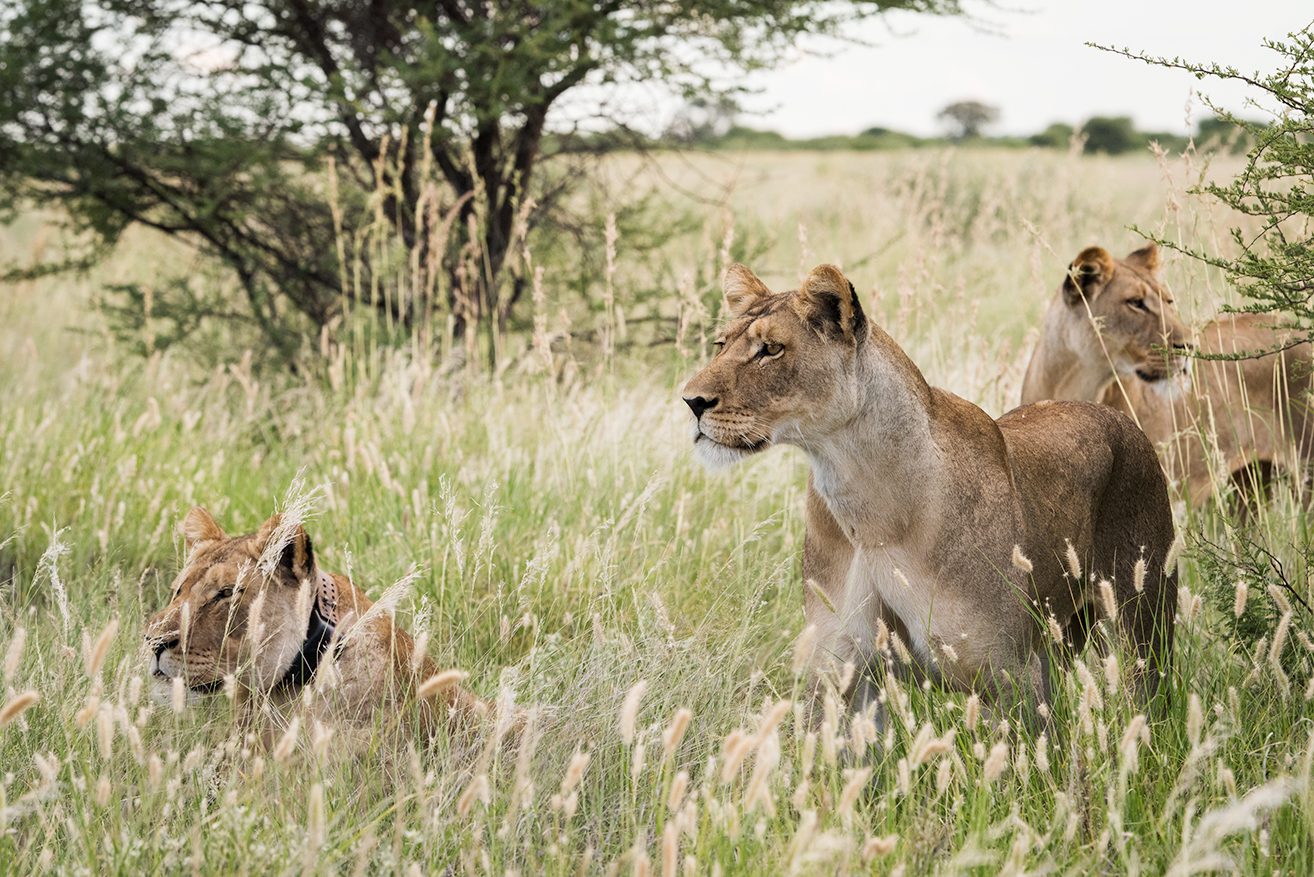
Top Experiences
The San People
In both Botswana and Namibia, opportunities exist to interact with the San – the original inhabitants of Southern Africa whose presence stretches back as much as 20,000 years. Lying at the edge of the Kalahari in Namibia, Otjozondjupa is part of the traditional homeland of the Ju/’Hoansi-San (also known as the !Kung). In Tsumkwe you can arrange everything from bushwalks to hunting safaris, and inject some much-needed cash into the local community. In Botswana opportunities to interact with these modern-day descendants of all our ancestors – in a way that can benefit the local community – exist in villages such as D’kar.
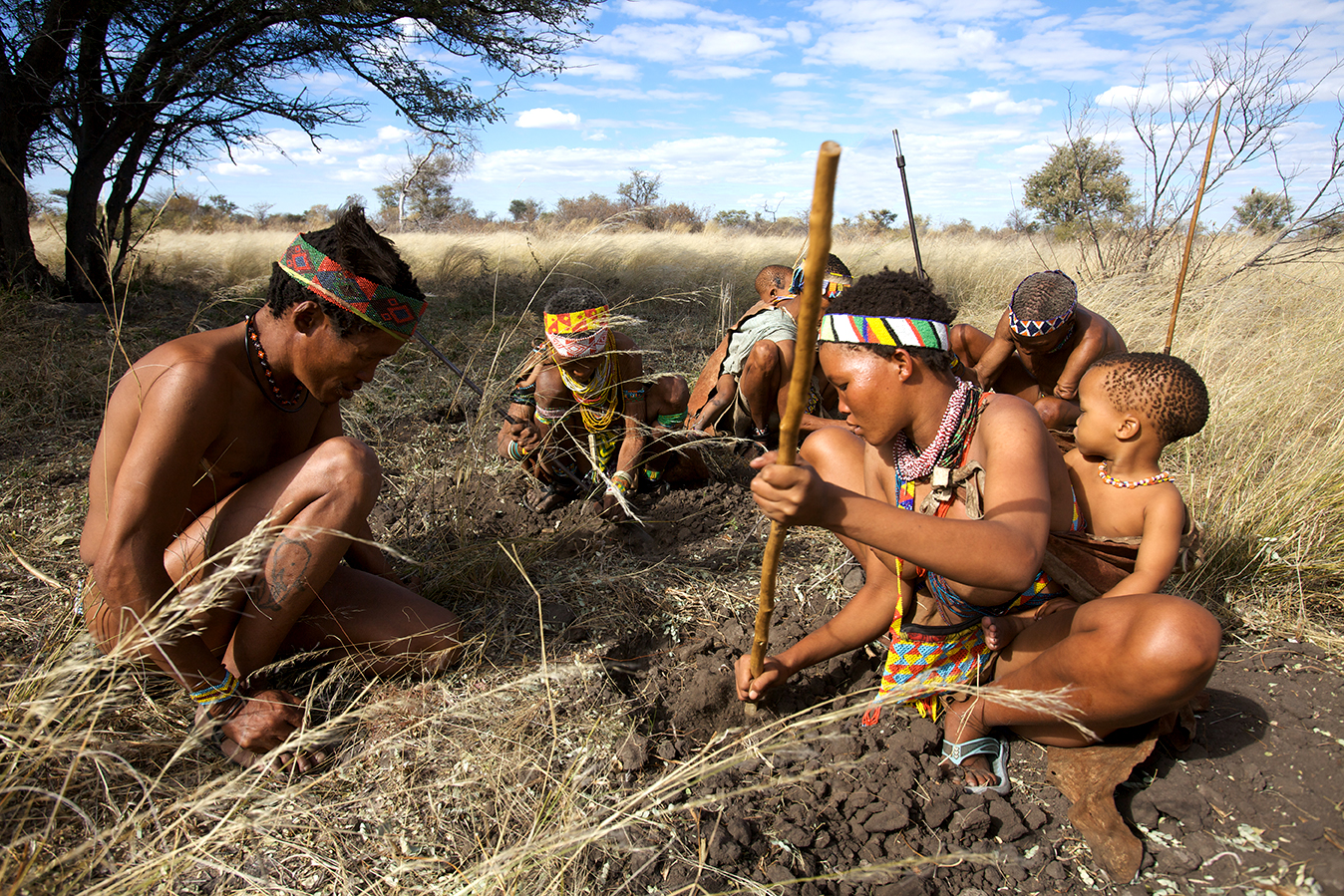
Top Experiences
A Luxury Safari
Botswana didn't invent the luxury safari, but it may just have perfected it. Nowhere else on earth will you find so many remote and utterly exclusive lodges and tented camps, accessible only by air or boat, where your every dream of the perfect safari comes true. Most are in the Okavango Delta, but you'll also find them in the neighbouring areas of Linyanti, Chobe National Park and the Central Kalahari Game Reserve. Picking favourites is always difficult, but we love Vumbura Plains Camp.
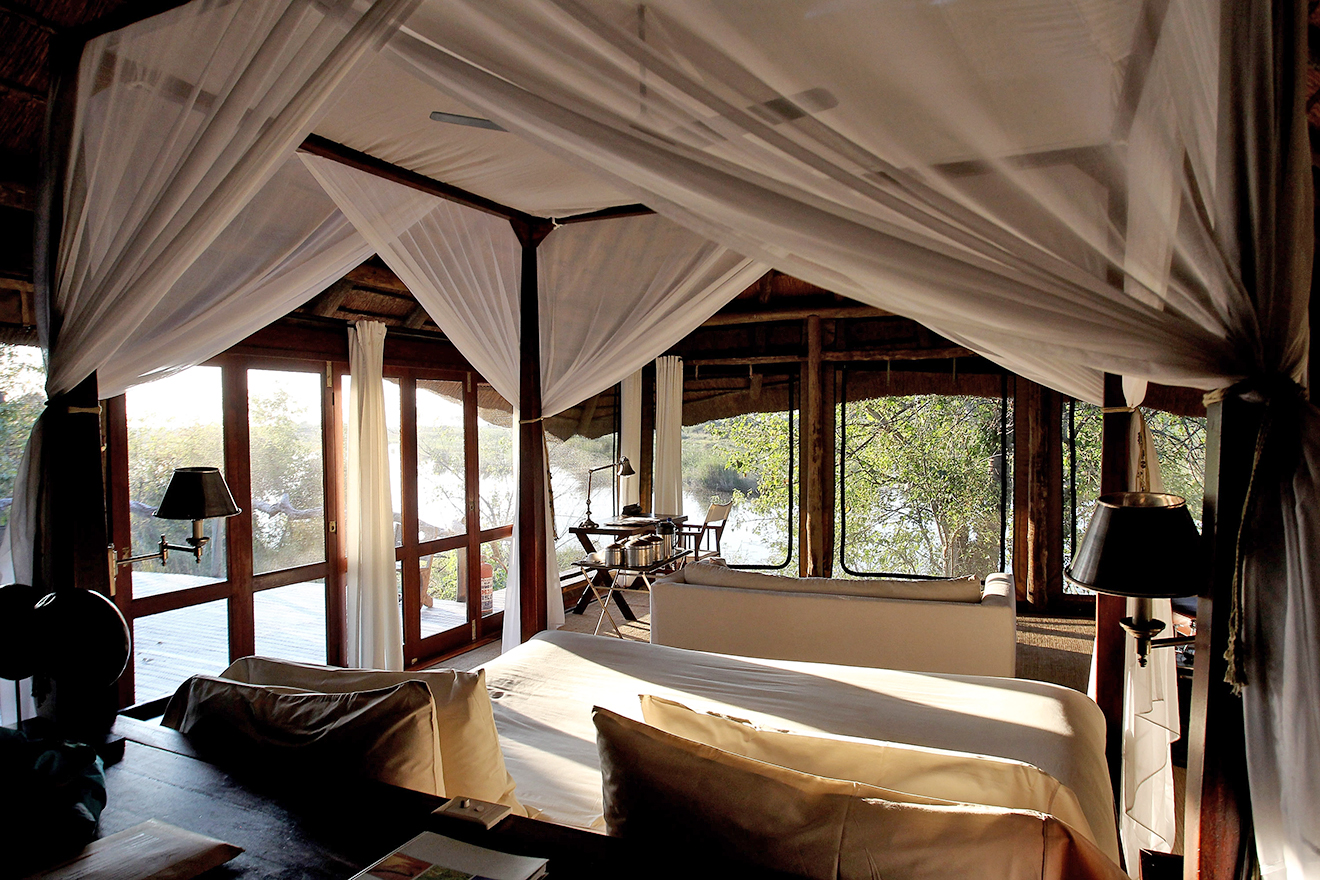
Top Experiences
Camping Out on Safari
There’s nothing quite like it for sharpening your senses and heightening your awareness of Africa. In either Botswana or Namibia, sleeping under the stars is a soulful experience and the antithesis of the modern world’s clamour – an infinity of stars, the crackle of the campfire, the immensity of the African night. But it’s not for the faint-hearted, what with wind whistling in the guy ropes, the not-so-distant roar of a lion, and the knowledge that only flimsy canvas separates you from an angry hippo. This is total immersion of the most wonderful (and sometimes scary) kind and you'll experience the African wild in a very special way.
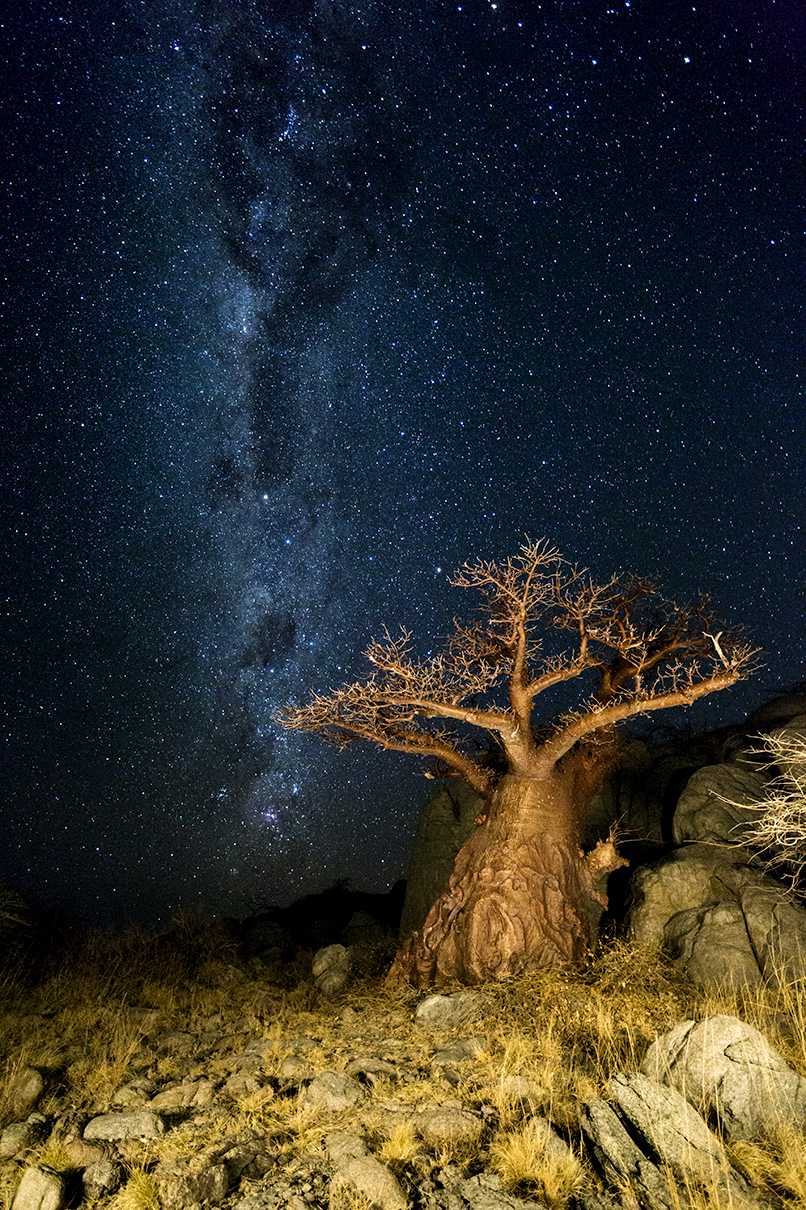
Top Experiences
Lüderitz
Namibia is a country that defies African stereotypes and this is perhaps nowhere more true than in the historic colonial town of Lüderitz. Straddling the icy South Atlantic and the blazing-hot Namib Desert is this bizarre mini-Deutschland seemingly stuck in a time warp. After walking its streets and sitting down to a plate of sausages and sauerkraut with an authentic weiss beer, you’ll survey the German art nouveau architecture, check the map again and shake your head in disbelief.

Top Experiences
Skeleton Coast
Travel on the Skeleton Coast, a treacherous stretch of shore where many ships have become graveyards, is the stuff of road-journey dreams. It’s a murky region with rocky and sandy coastal shallows, where rolling fogs and swirling sandstorms encapsulate its ghostly, isolated and untamed feel. It is among the most remote and inaccessible areas in the vast country of Namibia. And it’s here, in this wilderness, that you can put your favourite music on, sit back and let reality meet your imagination.
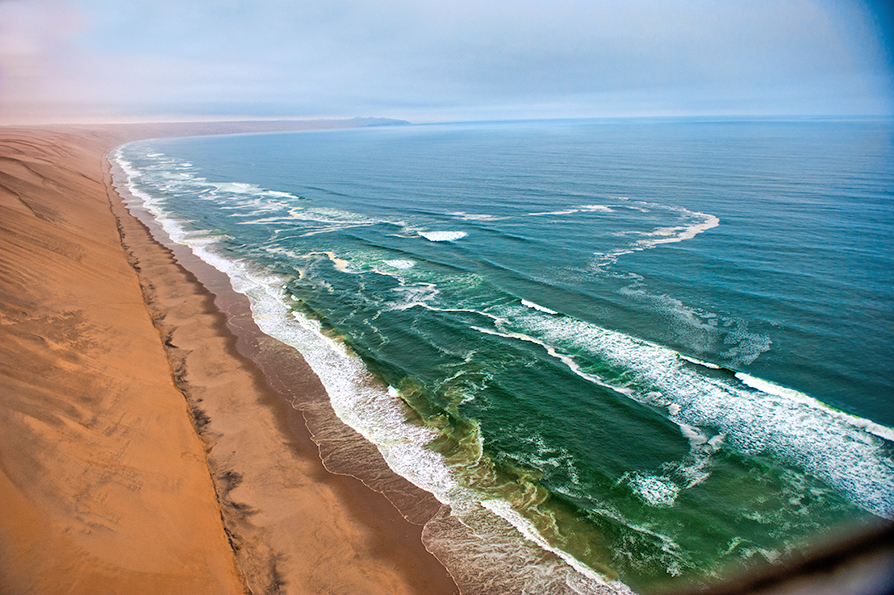
Top Experiences
Makgadikgadi Pans National Park
Part of the world’s largest network of salt pans, the endless horizons of Makgadikgadi are one of the Kalahari’s least known treasures. It is here, during the rainy season, that zebras migrate en masse – one of the great wildlife migrations in a continent of many. During the dry season, wildlife draws near to the rejuvenated Boteti River in similarly epic numbers. Meerkats are another highlight. And away across the pans, remote islands of baobabs rise from the salt like evocations of some ancient African oasis.
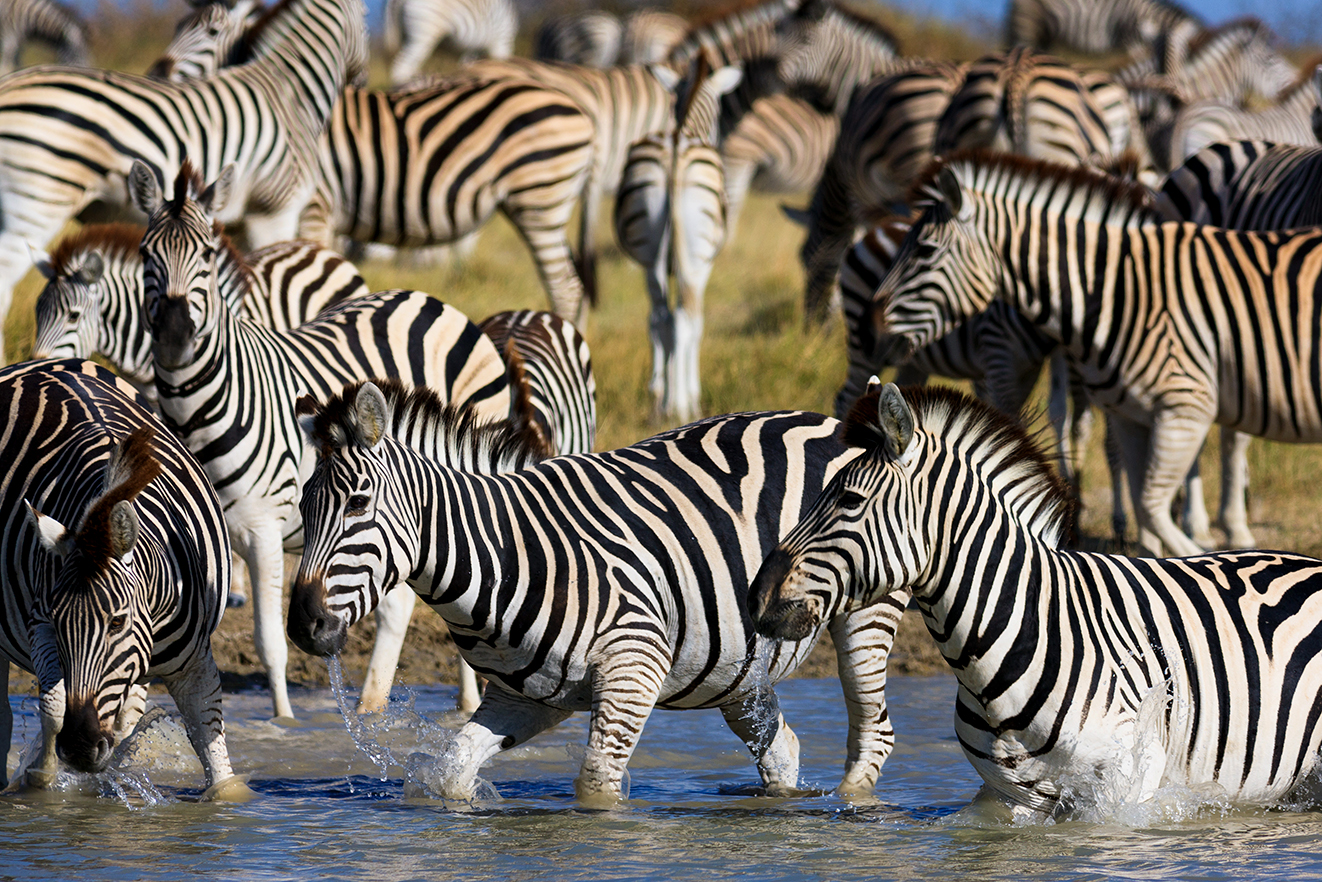
Top Experiences
Rock Art
The Tsodilo Hills, which became a Unesco World Heritage Site even before the Okavango Delta, is sometimes referred to as the ‘Louvre of the Desert’. More than 4000 ancient paintings, many dating back thousands of years, adorn the caves and cliffs of these picturesque mountains, which remain a sacred site for the San people. Expertly rendered in ochre-hued natural pigments, the paintings are at once beautiful and an invaluable chronology of the evolving relationship between human beings and the natural world. And such is their remoteness, you might just have them all to yourself.
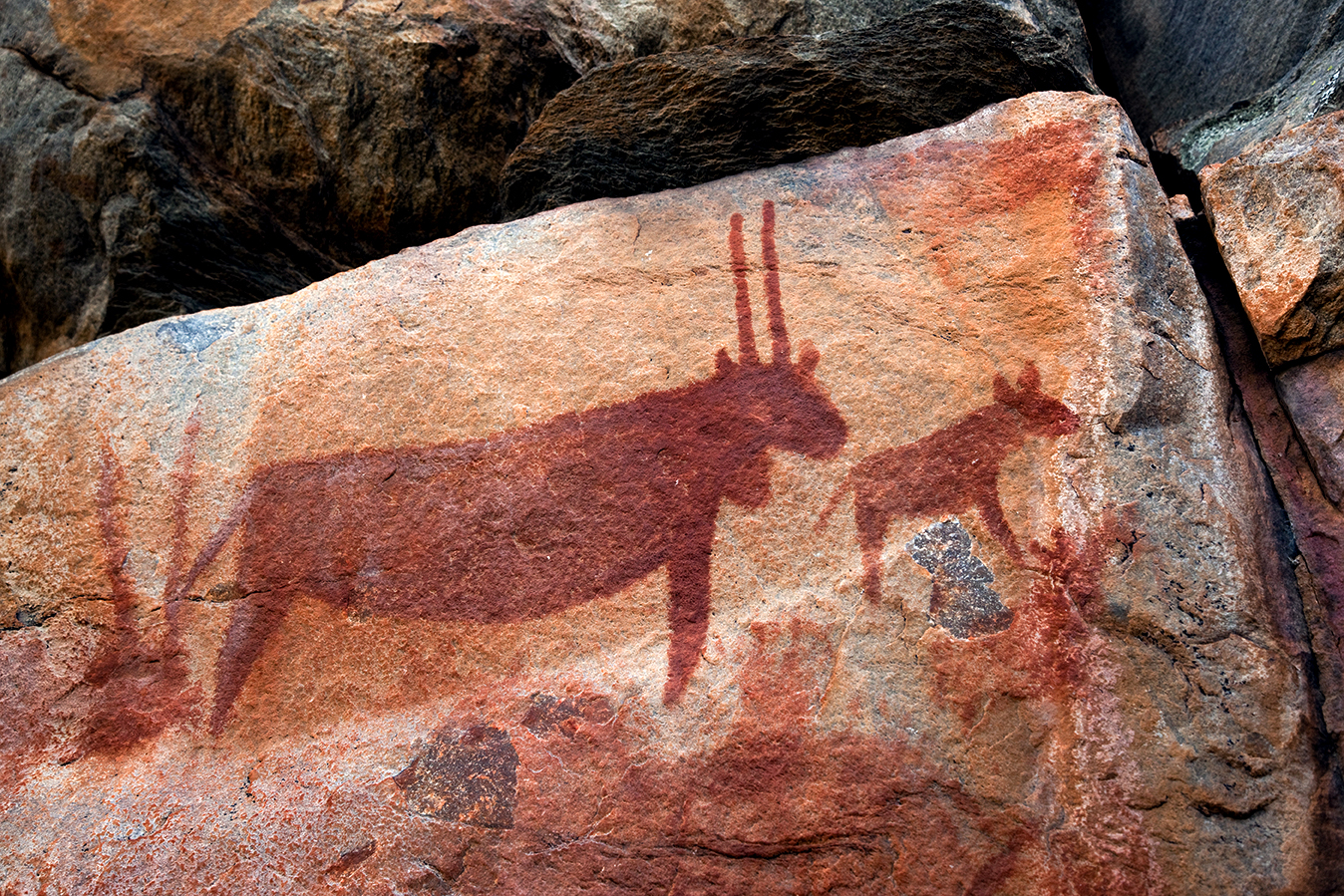
Top Experiences
Damaraland
Damaraland is Namibia in a rather beautiful nutshell. The landscapes here, turning burnt orange and blood red with the sinking sun, would be reason enough to visit – this is one beautiful corner of the country, with bouldered mountains, snaking dry valleys, bizarrely photogenic tree shapes – but the wildlife is also a wonderful story. Tracking down the free-roaming black rhinos, desert elephants and desert lions that are such icons of the Namibian wild in such gorgeous surrounds is a wonderful way to spend your time.
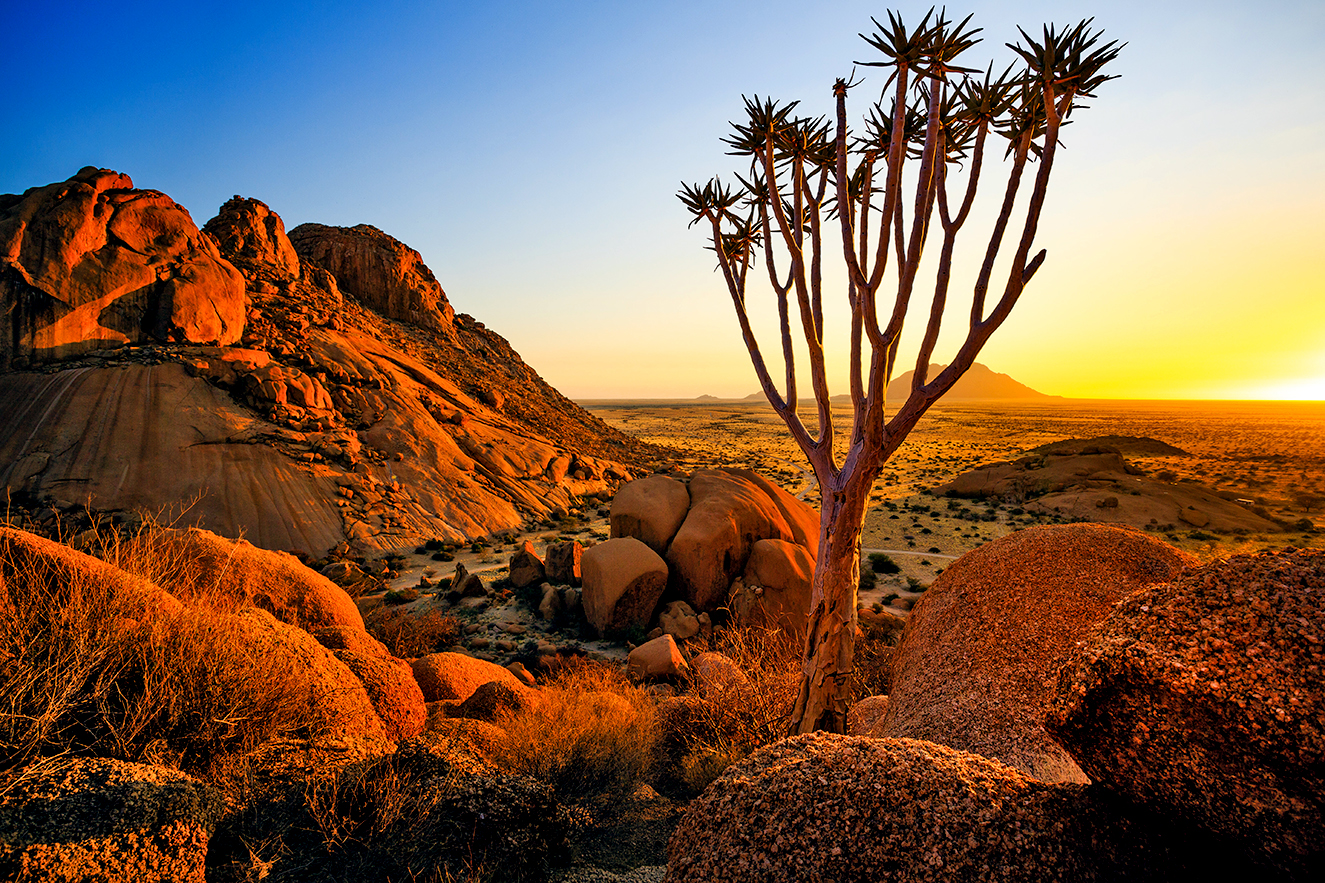
Top Experiences
The Himba & Herero
Culturally rich Namibia, with its colonial overtones, is best experienced in the varied communities of the Herero population, of which the Himba of the Kaokoveld are a subgroup. They're a striking people. The characteristic Herero women’s dress is derived from Victorian-era German missionaries and consists of an enormous crinoline worn over a series of petticoats, with a horn-shaped hat or headdress. In contrast, Himba women are famous for smearing themselves with a fragrant mixture of ochre, butter and bush herbs, which dyes their skin a burnt-orange hue. Don't come to stare. Instead, sit alongside them for an afternoon and learn about their world.
